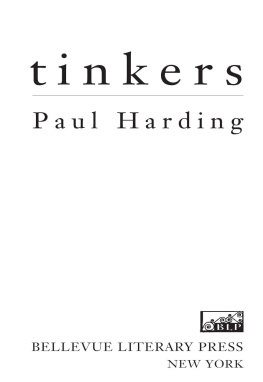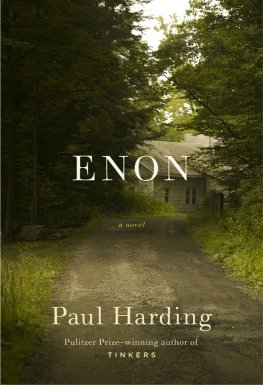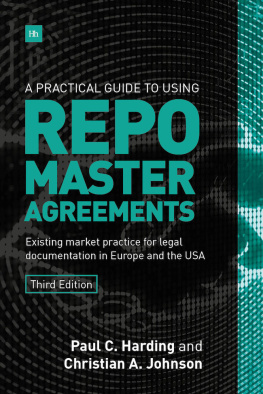Paul Harding - Tinkers
Here you can read online Paul Harding - Tinkers full text of the book (entire story) in english for free. Download pdf and epub, get meaning, cover and reviews about this ebook. year: 2009, publisher: Bellevue Literary Press, genre: Detective and thriller. Description of the work, (preface) as well as reviews are available. Best literature library LitArk.com created for fans of good reading and offers a wide selection of genres:
Romance novel
Science fiction
Adventure
Detective
Science
History
Home and family
Prose
Art
Politics
Computer
Non-fiction
Religion
Business
Children
Humor
Choose a favorite category and find really read worthwhile books. Enjoy immersion in the world of imagination, feel the emotions of the characters or learn something new for yourself, make an fascinating discovery.
- Book:Tinkers
- Author:
- Publisher:Bellevue Literary Press
- Genre:
- Year:2009
- Rating:4 / 5
- Favourites:Add to favourites
- Your mark:
- 80
- 1
- 2
- 3
- 4
- 5
Tinkers: summary, description and annotation
We offer to read an annotation, description, summary or preface (depends on what the author of the book "Tinkers" wrote himself). If you haven't found the necessary information about the book — write in the comments, we will try to find it.
Tinkers — read online for free the complete book (whole text) full work
Below is the text of the book, divided by pages. System saving the place of the last page read, allows you to conveniently read the book "Tinkers" online for free, without having to search again every time where you left off. Put a bookmark, and you can go to the page where you finished reading at any time.
Font size:
Interval:
Bookmark:

BELLEVUE LITERARY PRESS
NEW YORK
First published in the United States in 2008 by Bellevue Literary Press, New York
FOR INFORMATION ADDRESS :
Bellevue Literary Press
NYU School of Medicine
550 First Avenue
OBV 640
New York, NY 10016
Copyright 2009 by Paul Harding
All Rights Reserved. No part of this publication may be reproduced or transmitted in any form or by any means, electronic or mechanical, including photocopy, recording, or any information storage and retrieval system now known or to be invented without permission in writing from the publisher, except by a reviewer who wishes to quote brief passages in connection with a review written for inclusion in a magazine, newspaper, or broadcast.
This book was published with the generous support of Bellevue Literary Presss founding donor the Arnold Simon Family Trust and the Bernard & Irene Schwartz Foundation.
The author wishes to thank the Fine Arts Work Center in Provincetown, Massachusetts for support during the writing of this book.
Library of Congress Cataloging-in-Publication Data
Harding, Paul, 1967
Tinkers / Paul Harding.1st ed.
p. cm.
1. Reminiscing in old ageFiction. 2. Identity (Psychology) in old ageFiction. 3. DementiaPatientsFiction. 4. Psychological fiction. I. Title.
PS3608.A72535T56 2008 813.6dc22 2008039887
ISBN: 978-1-934137-22-2
For Meg, Samuel, and Benjamin
G EORGE W ASHINGTON C ROSBY BEGAN TO hallucinate eight days before he died. From the rented hospital bed, placed in the middle of his own living room, he saw insects running in and out of imaginary cracks in the ceiling plaster. The panes in the windows, once snugly pointed and glazed, stood loose in their sashes. The next stiff breeze would topple them all and they would flop onto the heads of his family, who sat on the couch and the love seat and the kitchen chairs his wife had brought in to accommodate everyone. The torrent of panes would drive everyone from the room, his grandchildren in from Kansas and Atlanta and Seattle, his sister in from Florida, and he would be marooned on his bed in a moat of shattered glass. Pollen and sparrows, rain and the intrepid squirrels he had spent half of his life keeping out of the bird feeders would breach the house.
He had built the house himselfpoured the foundation, raised the frame, joined the pipes, run the wires, plastered the walls, and painted the rooms. Lightning struck once when he was in the open foundation, soldering the last joint of the hot-water tank. It threw him to the opposite wall. He got up and finished the joint. Cracks in his plaster did not stay cracks; clogged pipes got routed; peeling clapboard got scraped and slathered with a new coat of paint.
Get some plaster, he said, propped up in the bed, which looked odd and institutional among the Persian rugs and Colonial furniture and dozens of antique clocks. Get some plaster. Jesus, some plaster and some wires and a couple of hooks. Youd be all set for about five bucks.
Yes, Gramp, they said.
Yes, Dad. A breeze blew through the open window behind him and cleared exhausted heads. Bocce balls clicked out on the lawn.
Noon found him momentarily alone, while the family prepared lunch in the kitchen. The cracks in the ceiling widened into gaps. The locked wheels of his bed sank into new fault lines opening in the oak floor beneath the rug. At any moment, the floor was going to give. His useless stomach would jump in his chest as if he were on a ride at the Topsfield Fair and with a spine-snapping jolt he and the bed would land in the basement, on top of the crushed ruins of his workshop. George imagined what he would see, as if the collapse had, in fact, already happened: the living room ceiling, now two stories high, a ragged funnel of splintered floorboards, bent copper pipes, and electrical wires that looked like severed veins bordering the walls and pointing towards him in the center of all of that sudden ruin. Voices murmured out in the kitchen.
George turned his head, hoping someone might be sitting just out of view, with a paper plate of potato salad and rolled slices of roast beef on her lap and a plastic cup of ginger ale in her hand. But the ruin persisted. He thought he called out, but the womens voices in the kitchen and the mens voices in the yard hummed uninterrupted. He lay on his heap of wreckage, looking up.
The second floor fell on him, with its unfinished pine framing and dead-end plumbing (the capped pipes never joined to the sink and toilet he had once intended to install) and racks of old coats and boxes of forgotten board games and puzzles and broken toys and bags of family picturessome so old they were exposed on tin platesall of it came crashing down into the cellar, he unable to even raise a hand to protect his face.
But he was nearly a ghost, almost made of nothing, and so the wood and metal and sheaves of brightly printed cardboard and paper ( MOVE FORWARD SIX SPACES TO EASY STREET ! Great-Grammy Noddin, shawled and stiff and frowning at the camera, absurd with her hat that looked like a sailors funeral mound, heaped with flowers and netting), which otherwise would have crushed his bones, dropped on him and fell away like movie props, he or they facsimiles of former, actual things.
There he lay among the graduation photos and old wool jackets and rusted tools and newspaper clippings about his promotion to head of the mechanical-drawing department at the local high school, and then about his appointment as director of guidance, and then about his retirement and subsequent life as a trader and repairer of antique clocks. The mangled brass works of the clocks he had been repairing were strewn among the mess. He looked up three stories to the exposed support beams of the roof and the plump silver-backed batts of insulation that ran between them. One grandson or another ( which? ) had stapled the insulation into place years ago and now two or three lengths of it had come loose and lolled down like pink woolly tongues.
The roof collapsed, sending down a fresh avalanche of wood and nails, tarpaper and shingles and insulation. There was the sky, filled with flat-topped clouds, cruising like a fleet of anvils across the blue. George had the watery, raw feeling of being outdoors when you are sick. The clouds halted, paused for an instant, and plummeted onto his head.
The very blue of the sky followed, draining from the heights into that cluttered concrete socket. Next fell the stars, tinkling about him like the ornaments of heaven shaken loose. Finally, the black vastation itself came untacked and draped over the entire heap, covering Georges confused obliteration.
Nearly seventy years before George died, his father, Howard Aaron Crosby, drove a wagon for his living. It was a wooden wagon. It was a chest of drawers mounted on two axles and wooden spoked wheels. There were dozens of drawers, each fitted with a recessed brass ring, pulled open with a hooked forefinger, that contained brushes and wood oil, tooth powder and nylon stockings, shaving soap and straight-edge razors. There were drawers with shoe shine and boot strings, broom handles and mop heads. There was a secret drawer where he kept four bottles of gin. Mostly, back roads were his route, dirt tracks that ran into the deep woods to hidden clearings where a log cabin sat among sawdust and tree stumps and a woman in a plain dress and hair pulled back so tight that she looked as if she were smiling (which she was not) stood in a crooked doorway with a cocked squirrel gun. Oh, its you, Howard. Well, I guess I need one of your tin buckets. In the summer, he sniffed heather and sang someones rocking my dreamboat and watched the monarch butterflies (butter fires, flutter flames; he imagined himself somewhat of a poet) up from Mexico. Spring and fall were his most prosperous times, fall because the backwoods people stocked up for the winter (he piled goods from the cart onto blazing maple leaves), spring because they had been out of supplies often for weeks before the roads were passable for his first rounds. Then they came to the wagon like sleepwalkers: bright-eyed and ravenous. Sometimes he came out of the woods with orders for coffinsa child, a wife wrapped up in burlap and stiff in the woodshed.
Font size:
Interval:
Bookmark:
Similar books «Tinkers»
Look at similar books to Tinkers. We have selected literature similar in name and meaning in the hope of providing readers with more options to find new, interesting, not yet read works.
Discussion, reviews of the book Tinkers and just readers' own opinions. Leave your comments, write what you think about the work, its meaning or the main characters. Specify what exactly you liked and what you didn't like, and why you think so.


















